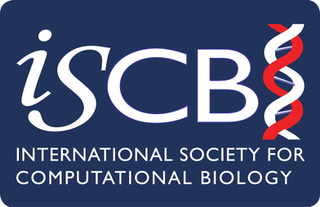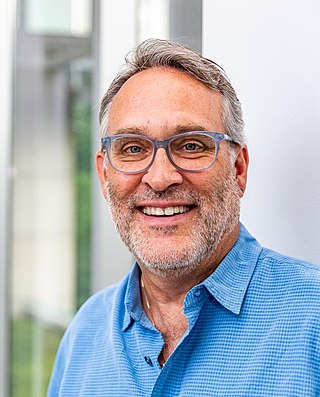Michael John Witbrock is a computer scientist in the field of artificial intelligence. Witbrock is a native of New Zealand and is the former Vice President of Research at Cycorp, which is carrying out the Cyc project in an effort to produce a genuine Artificial Intelligence.
A cognitive tutor is a particular kind of intelligent tutoring system that utilizes a cognitive model to provide feedback to students as they are working through problems. This feedback will immediately inform students of the correctness, or incorrectness, of their actions in the tutor interface; however, cognitive tutors also have the ability to provide context-sensitive hints and instruction to guide students towards reasonable next steps.
Roger Carl Schank was an American artificial intelligence theorist, cognitive psychologist, learning scientist, educational reformer, and entrepreneur. Beginning in the late 1960s, he pioneered conceptual dependency theory and case-based reasoning, both of which challenged cognitivist views of memory and reasoning. He began his career teaching at Yale University and Stanford University. In 1989, Schank was granted $30 million in a ten-year commitment to his research and development by Andersen Consulting, through which he founded the Institute for the Learning Sciences (ILS) at Northwestern University in Chicago.

The Conference and Workshop on Neural Information Processing Systems is a machine learning and computational neuroscience conference held every December. The conference is currently a double-track meeting that includes invited talks as well as oral and poster presentations of refereed papers, followed by parallel-track workshops that up to 2013 were held at ski resorts.

The 1991–92 NHL season was the 75th regular season of the National Hockey League. The league expanded to 22 teams with the addition of the expansion San Jose Sharks. For the first time, the Stanley Cup Finals extended into June, with the Pittsburgh Penguins repeating as Stanley Cup champions, winning the best of seven series four games to none against the Chicago Blackhawks.
An intelligent tutoring system (ITS) is a computer system that aims to provide immediate and customized instruction or feedback to learners, usually without requiring intervention from a human teacher. ITSs have the common goal of enabling learning in a meaningful and effective manner by using a variety of computing technologies. There are many examples of ITSs being used in both formal education and professional settings in which they have demonstrated their capabilities and limitations. There is a close relationship between intelligent tutoring, cognitive learning theories and design; and there is ongoing research to improve the effectiveness of ITS. An ITS typically aims to replicate the demonstrated benefits of one-to-one, personalized tutoring, in contexts where students would otherwise have access to one-to-many instruction from a single teacher, or no teacher at all. ITSs are often designed with the goal of providing access to high quality education to each and every student.
Claude Gauthier is a Quebec singer-songwriter and actor.
Kenneth R. Koedinger is a professor of human–computer interaction and psychology at Carnegie Mellon University. He is the founding and current director of the Pittsburgh Science of Learning Center. He is widely known for his role in the development of the Cognitive Tutor software. He is also widely published in cognitive psychology, intelligent tutoring systems, and educational data mining, and his research group has repeatedly won "Best Paper" awards at scientific conferences in those areas, such as the EDM2008 Best Paper, ITS2006 Best Paper, ITS2004 Best Paper, and ITS2000 Best Paper.

Intelligent Systems for Molecular Biology (ISMB) is an annual academic conference on the subjects of bioinformatics and computational biology organised by the International Society for Computational Biology (ISCB). The principal focus of the conference is on the development and application of advanced computational methods for biological problems. The conference has been held every year since 1993 and has grown to become one of the largest and most prestigious meetings in these fields, hosting over 2,000 delegates in 2004. From the first meeting, ISMB has been held in locations worldwide; since 2007, meetings have been located in Europe and North America in alternating years. Since 2004, European meetings have been held jointly with the European Conference on Computational Biology (ECCB).
Project LISTEN was a 25-year research project at Carnegie Mellon University to improve children's reading skills. Project LISTEN. The project created a computer-based Reading Tutor that listens to a child reading aloud, corrects errors, helps when the child is stuck or encounters a hard word, provides hints, assesses progress, and presents more advanced text when the child is ready. The Reading Tutor has been used daily by hundreds of children in field tests at schools in the United States, Canada, Ghana, and India. Thousands of hours of usage logged at multiple levels of detail, including millions of words read aloud, have been stored in a database that has been mined to improve the Tutor's interactions with students. An extensive list of publications can be found at Carnegie Mellon University.
AutoTutor is an intelligent tutoring system developed by researchers at the Institute for Intelligent Systems at the University of Memphis, including Arthur C. Graesser that helps students learn Newtonian physics, computer literacy, and critical thinking topics through tutorial dialogue in natural language. AutoTutor differs from other popular intelligent tutoring systems such as the Cognitive Tutor, in that it focuses on natural language dialog. This means that the tutoring occurs in the form of an ongoing conversation, with human input presented using either voice or free text input. To handle this input, AutoTutor uses computational linguistics algorithms including latent semantic analysis, regular expression matching, and speech act classifiers. These complementary techniques focus on the general meaning of the input, precise phrasing or keywords, and functional purpose of the expression, respectively. In addition to natural language input, AutoTutor can also accept ad hoc events such as mouse clicks, learner emotions inferred from emotion sensors, and estimates of prior knowledge from a student model. Based on these inputs, the computer tutor determine when to reply and what speech acts to reply with. This process is driven by a "script" that includes a set of dialog-specific production rules.

The International Conference on Machine Learning (ICML) is the leading international academic conference in machine learning. Along with NeurIPS and ICLR, it is one of the three primary conferences of high impact in machine learning and artificial intelligence research. It is supported by the (IMLS). Precise dates vary year to year, but paper submissions are generally due at the end of January, and the conference is generally held the following July. The first ICML was held 1980 in Pittsburgh.

The International Society for Computational Biology (ISCB) is a scholarly society for researchers in computational biology and bioinformatics. The society was founded in 1997 to provide a stable financial home for the Intelligent Systems for Molecular Biology (ISMB) conference and has grown to become a larger society working towards advancing understanding of living systems through computation and for communicating scientific advances worldwide.
Tree testing is a usability technique for evaluating the findability of topics in a website. It is also known as reverse card sorting or card-based classification.
ALEKS is an online tutoring and assessment program that includes course material in mathematics, chemistry, introductory statistics, and business.
Educational data mining (EDM) is a research field concerned with the application of data mining, machine learning and statistics to information generated from educational settings. At a high level, the field seeks to develop and improve methods for exploring this data, which often has multiple levels of meaningful hierarchy, in order to discover new insights about how people learn in the context of such settings. In doing so, EDM has contributed to theories of learning investigated by researchers in educational psychology and the learning sciences. The field is closely tied to that of learning analytics, and the two have been compared and contrasted.
Vincent Aleven is a professor of human-computer interaction and director of the undergraduate program at Carnegie Mellon University's Human–Computer Interaction Institute.
An intelligent user interface is a user interface (UI) that involves some aspect of artificial intelligence. There are many modern examples of IUIs, the most famous being the Microsoft Office Assistant, whose most recognizable agentive representation was called "Clippy".

The Turing Institute was an artificial intelligence laboratory in Glasgow, Scotland, between 1983 and 1994. The company undertook basic and applied research, working directly with large companies across Europe, the United States and Japan developing software as well as providing training, consultancy and information services.

Bruce Martin McLaren is an American researcher, scientist and author. He is an Associate Research Professor at Carnegie Mellon University and a former President of the International Artificial Intelligence in Education Society (2017-2019).






